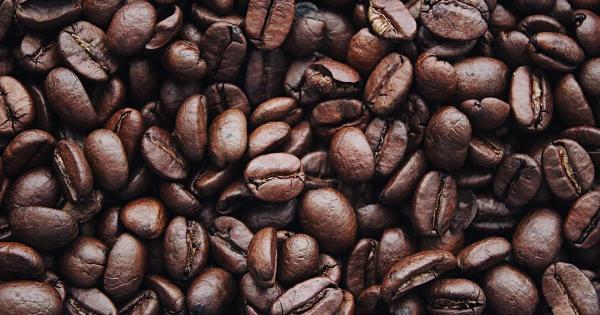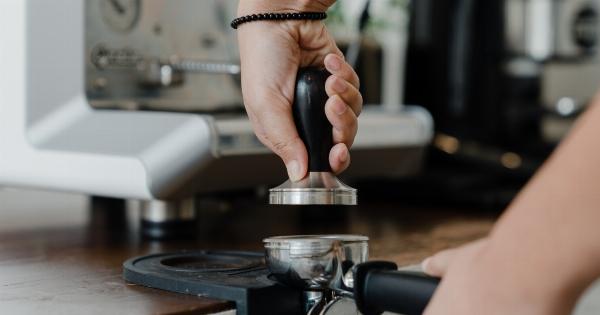For many people, caffeine is an essential part of their daily routine. Several cups of coffee, tea, or soda provide the necessary energy boost to start the day or get over an afternoon slump.
However, caffeine can also have adverse effects on health and wellbeing, from jitters and headaches to increased anxiety, disrupted sleep, and digestive problems.
If you’re considering giving up caffeine, you may wonder what changes to expect. Here are ten possible effects of quitting caffeine:.
1. Better Sleep Quality
Caffeine is a stimulant that can interfere with the natural sleep cycle by delaying the onset of sleep, reducing total sleep time, and increasing wakefulness during the night.
By avoiding caffeine, especially in the afternoon and evening, you’ll likely experience improved sleep quality and duration, leading to better mood, cognition, and physical performance.
2. Reduced Anxiety and Agitation
Caffeine can enhance cognitive and psychomotor functions, but it can also trigger or exacerbate anxiety and agitation, especially in susceptible individuals.
By eliminating caffeine, you may notice a decrease in nervousness, restlessness, and irritability, as well as less frequent panic attacks or obsessive-compulsive behaviors.
3. Lower Blood Pressure and Heart Rate
Caffeine can be a vasoconstrictor, causing the blood vessels to narrow and the heart to pump faster. This effect can raise blood pressure and heart rate, especially in people with hypertension or cardiovascular conditions.
By quitting caffeine, you may see a reduction in both systolic and diastolic pressure, as well as a slower resting heart rate, which can decrease the risk of stroke, heart attack, and other cardiovascular events.
4. Clearer Skin and Hair
Caffeine can dehydrate the body and affect the production of hormones that regulate skin and hair health. By avoiding caffeinated drinks, you may notice an improvement in skin texture, color, and firmness, as well as stronger and shinier hair.
You may also avoid the risk of caffeine-induced acne, rashes, or wrinkles.
5. Better Digestion and Bowel Movements
Caffeine can increase the secretion of gastric acid and promote the contraction of the intestinal muscles, leading to acid reflux, bloating, diarrhea, or constipation.
By giving up caffeine, you may experience a smoother and more regular bowel function, as well as relief from digestive discomfort and inflammation.
6. More Stable Energy and Mood
Caffeine can provide a quick energy boost, but it can also result in a rapid crash in blood sugar levels, causing fatigue, drowsiness, and mood swings.
By quitting caffeine, you may establish a more consistent and sustainable level of energy and mood, without the need for chemical stimulation or the risk of dependence or tolerance.
7. Increased Hydration and Kidney Function
Caffeine is a mild diuretic that can increase urine production and decrease fluid retention, which can have positive or negative effects on hydration and kidney function, depending on the amount of caffeine ingested and other factors.
By avoiding caffeine, you may prevent dehydration, improve kidney filtration, and reduce the risk of urinary tract infections and kidney stones.
8. Better Absorption of Nutrients and Medications
Caffeine can interfere with the absorption of certain nutrients, such as iron, calcium, and magnesium, by binding to them and reducing their bioavailability.
It can also affect the metabolism and elimination of some medications, leading to interactions, side effects, or decreased efficacy. By quitting caffeine, you may optimize the absorption and utilization of essential nutrients and medications, thus improving overall health and wellbeing.
9. Increased Awareness and Mindfulness
Caffeine can enhance alertness, focus, and concentration, but it can also create a sense of urgency, haste, and impatience.
By quitting caffeine, you may develop a more mindful and reflective attitude towards daily tasks and challenges, with less pressure and stress to perform. You may also discover new ways to boost mental clarity and creativity, such as meditation, exercise, or socializing.
10. Reduced Risk of Addiction and Dependence
Caffeine is a psychoactive substance that can induce tolerance, withdrawal, and addiction, especially in high doses or long-term use. By quitting caffeine, you may break the cycle of dependence and gain more control over your choices and habits.
You may also avoid the financial, social, and health costs associated with excessive caffeine consumption, such as buying expensive drinks, disrupting sleep patterns, or developing caffeine-related disorders.
Conclusion
Quitting caffeine can be a challenging but rewarding journey towards better health and wellness. By eliminating caffeine from your diet, you may experience numerous benefits, from improved sleep quality and digestion to reduced anxiety and inflammation.
You may also discover new ways to boost your energy, creativity, and mindfulness, without relying on caffeine or other stimulants. Whatever your reason for quitting caffeine, be patient, kind, and consistent with yourself, and seek professional advice if needed.





























